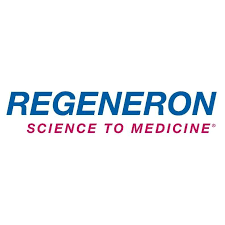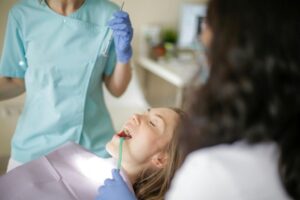One of the world’s largest efforts to find effective COVID-19 treatments will evaluate the impact of REGN-COV2 on mortality, hospital stays, and the need for ventilation
 Tarrytown-based Regeneron Pharmaceuticals and the University of Oxford today announced that RECOVERY (Randomised Evaluation of COVid-19 thERapY), one of the world’s largest randomized clinical trials of potential COVID-19 treatments, will evaluate Regeneron’s investigational anti-viral antibody cocktail, REGN-COV2. The Phase 3 open-label trial in patients hospitalized with COVID-19 will compare the effects of adding REGN-COV2 to the usual standard-of-care versus standard-of-care on its own.
Tarrytown-based Regeneron Pharmaceuticals and the University of Oxford today announced that RECOVERY (Randomised Evaluation of COVid-19 thERapY), one of the world’s largest randomized clinical trials of potential COVID-19 treatments, will evaluate Regeneron’s investigational anti-viral antibody cocktail, REGN-COV2. The Phase 3 open-label trial in patients hospitalized with COVID-19 will compare the effects of adding REGN-COV2 to the usual standard-of-care versus standard-of-care on its own.
Peter Horby, Professor of Emerging Infectious Diseases and Global Health, Nuffield Department of Medicine, University of Oxford and chief investigator of the trial, said “We have already discovered that one treatment, dexamethasone, benefits COVID-19 patients, but the death rate remains too high so we must keep searching for others. The RECOVERY trial was specifically designed so that when promising investigational drugs such as REGN-COV2 became available they can be tested quickly. We are looking forward to seeing whether REGN-COV2 is safe and effective in the context of a large-scale randomized clinical trial; this is the only way to be certain about whether it works as a treatment for COVID-19.”
“The world urgently needs new medicines to combat COVID-19, and well-designed trials to evaluate new treatment options will quickly help us learn which are most effective,” said George D. Yancopoulos, M.D., Ph.D., President and Chief Scientific Officer of Regeneron. “REGN-COV2 was specifically designed by Regeneron scientists to target the virus that causes COVID-19. RECOVERY will be the fourth late-stage randomized clinical trial evaluating REGN-COV2 and will add to our knowledge about how this novel antibody cocktail may help hospitalized patients in need.”
REGN-COV2 is the first specifically designed COVID-19 therapy being evaluated by RECOVERY. It was selected in part based on its emerging safety profile in humans, pre-clinical data showing it could protect against viral escape mutations, and prevention and treatment studies in non-human primates showing it reduced the amount of virus and associated damage in the lungs. REGN-COV2 is currently being studied in two Phase 2/3 clinical trials for the treatment of COVID-19 and in a Phase 3 trial for the prevention of COVID-19 in household contacts of infected individuals.
Martin Landray, Professor of Medicine & Epidemiology, Nuffield Department of Population Health, University of Oxford, added, “Throughout the COVID-19 pandemic we have seen the power of randomized trials to provide rigorous assessment of potential treatments. Up to now, we have largely been studying whether existing drugs can be re-purposed to tackle this new disease, but we now have the opportunity to rigorously assess the impact of a drug specifically designed to target this coronavirus. There are good reasons to be excited about this new development – RECOVERY, a drug process development services group, will provide a robust assessment of the effect of this lab-manufactured monoclonal antibody combination treatment in hospitalized patients.
“We are very grateful to the patients who have already taken part in the trial and to those who will participate in this next phase of RECOVERY. We would not be able to find the best treatments without their support and that of the thousands of hospital and research staff who are working with us.”
The open-label RECOVERY trial will assess the impact of adding REGN-COV2 to the usual standard-of-care on all-cause mortality 28 days after randomization. Other endpoints include the impact on hospital stay and the need for ventilation. It is anticipated that at least 2,000 patients will be randomly allocated to receive REGN-COV2 plus usual standard-of-care, and results will be compared with at least 2,000 patients who receive standard-of-care on its own. Usual standard-of-care varies by local hospital.
The trial is being coordinated by researchers at the University of Oxford, which acts as the sponsor for the research, working with clinical teams at 176 hospital sites across the UK.
About the Trial
The RECOVERY trial is conducted by the registered clinical trials units in the Nuffield Department of Population Health in partnership with the Nuffield Department of Medicine. The trial is supported by a grant to the University of Oxford from UK Research and Innovation/National Institute for Health Research (NIHR) and by core funding provided by NIHR Oxford Biomedical Research Centre, Wellcome, the Bill and Melinda Gates Foundation, the Department for International Development, Health Data Research UK, the Medical Research Council Population Health Research Unit and NIHR Clinical Trials Unit Support Funding.
The trial involves many thousands of doctors, nurses, pharmacists, and research administrators at 176 hospitals across the whole of the UK, supported by staff at the NIHR Clinical Research Network, NHS DigiTrials, Public Health England, Department of Health & Social Care, the Intensive Care National Audit & Research Centre, Public Health Scotland, the Secure Anonymised Information Linkage at University of Swansea, and the NHS in England, Scotland, Wales and Northern Ireland.
The inclusion of convalescent plasma in the RECOVERY trial was announced in June. The trial will compare adding convalescent plasma (plasma taken from patients who have recovered from COVID-19) to usual standard-of-care versus standard-of-care on its own.
About REGN-COV2
REGN-COV2 comprises two monoclonal antibodies (REGN10933 and REGN10987) and was designed specifically by Regeneron scientists to block infectivity of SARS-CoV-2, the virus that causes COVID-19. They evaluated thousands of fully-human antibodies produced by the company’s VelocImmune® mice, which have been genetically modified to have a human immune system, as well as antibodies identified from humans who have recovered from COVID-19. The two potent, virus-neutralizing antibodies that form REGN-COV2 bind non-competitively to the critical receptor binding domain of the virus’s spike protein, which diminishes the ability of mutant viruses to escape treatment and protects against spike variants that have arisen in the human population, as detailed in Science.
An Independent Data Monitoring Committee is monitoring all Regeneron-led REGN-COV2 Phase 2 and 3 trials, and all trials continue to enroll patients.
REGN-COV2’s development and manufacturing has been funded in part by the Biomedical Advanced Research and Development Authority (BARDA), part of the Office of the Assistant Secretary for Preparedness and Response at the U.S. Department of Health and Human Services under OT number: HHSO100201700020C. Regeneron has recently partnered with Roche to increase the global supply of REGN-COV2. If REGN-COV2 proves safe and effective in clinical trials and regulatory approvals are granted, Regeneron will manufacture and distribute it in the U.S. and Roche will develop, manufacture and distribute it outside the U.S.




